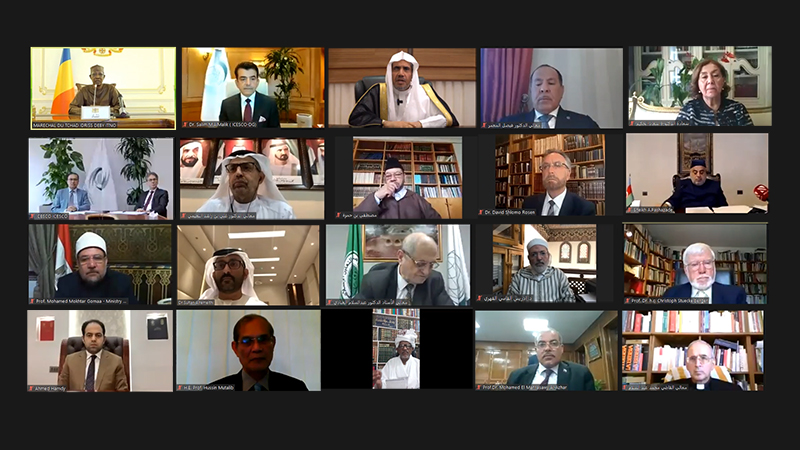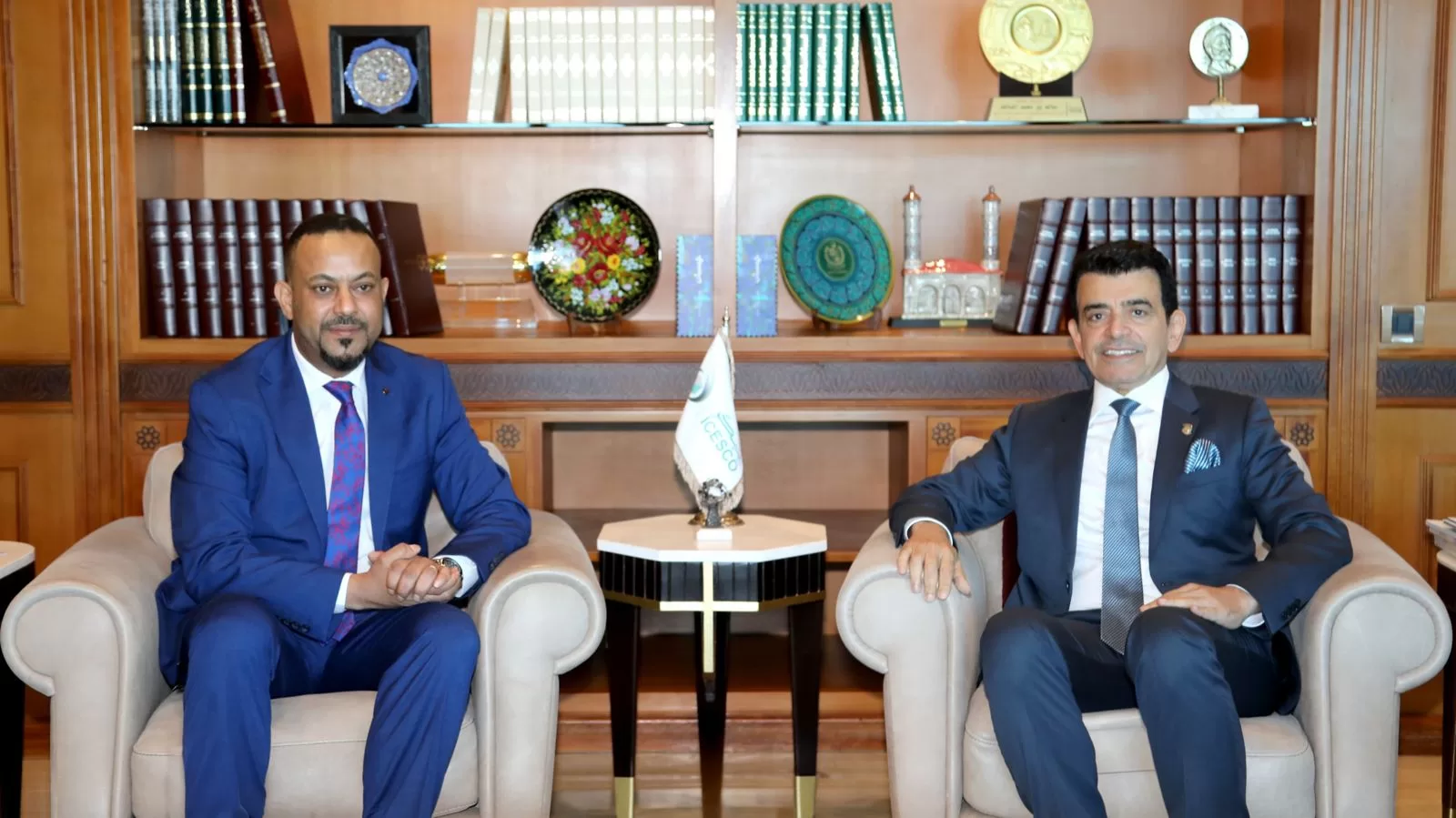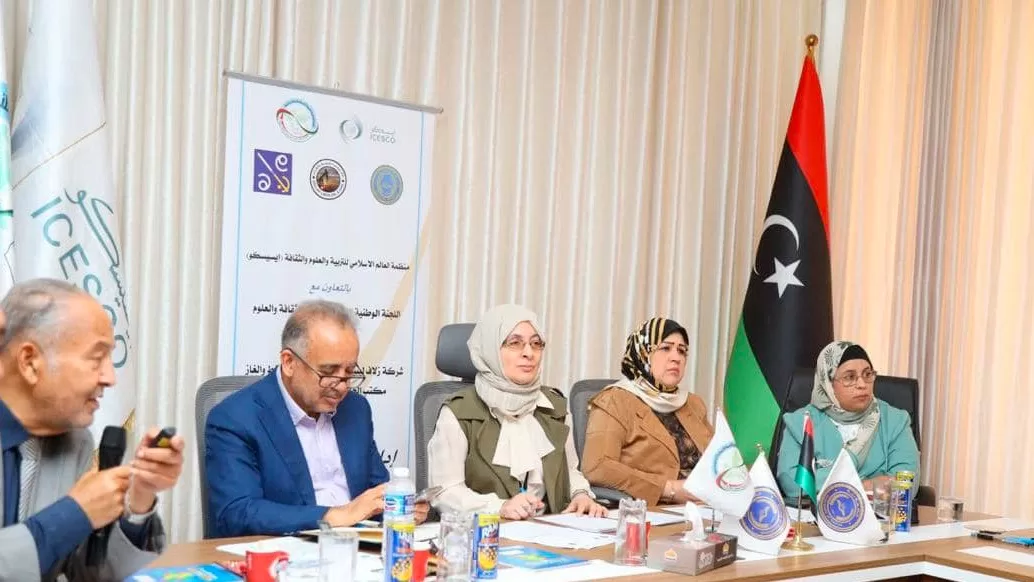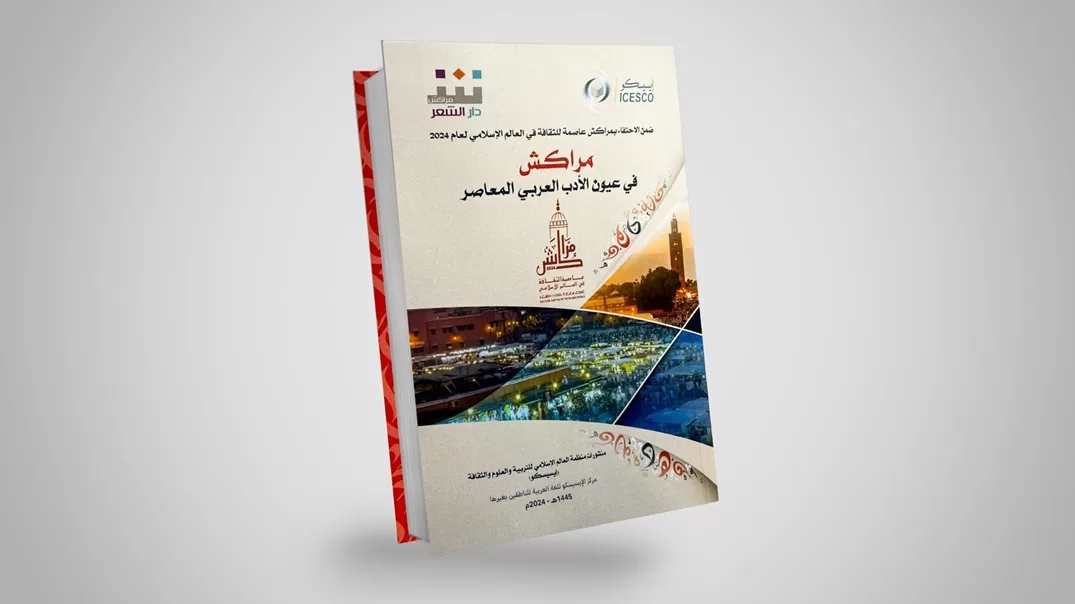
International Religious Leaderships Forum Issues ICESCO’s “Towards a Global Moral Solidarity” Declaration

22 July 2020
The Islamic World Educational, Scientific and Cultural Organization (ICESCO) held on Tuesday, July 21 under the theme “Role of Religious Leaderships in the Face of Crises,” with the participation of H.E. President Idriss Deby Itno of the Republic of Chad and several renowned religious and intellectual figures, as well as the representatives of a large number of bodies and institutions.
During the International Virtual Forum, participants reaffirmed that any global model of comprehensive and sustainable development should draw on ethical and spiritual values based on two foundations, namely the need for global ethics and the preservation of human dignity.
The Forum, held by ICESCO in cooperation with the Muslim World League (MWL) and the International Muslim Communities Council (TWMCC), called for a commitment to five basic principles in its closing statement, namely the right to practice the faith of one’s choice and respect for religions, the right to life and dissemination of peace, human solidarity and co-building a just world economy, the culture of tolerance in words and deeds, and the principle of gender equality in rights and obligations.
To attain these noble objectives and reap their benefits, the participants stressed the need for intensifying efforts of religious leadership to bring viewpoints and positions closer together to address these crises and sustain joint action. It can be conducted through an executable plan, workable programmes, and creative solutions to give effect to the outcomes of this Declaration.
The aim is to provide the solutions desired by the countries and the world to enable religious leaderships to take on their mission as civilizational witnesses and promote the role of faith-based and ethical values in addressing global crises.
The Forum made ten recommendations, which were read out by Dr. Salim M. AlMalik, ICESCO Director-General, at the closing session as follows:
- Compiling, documenting, and capitalizing on the initiatives and best practices of the specialized organizations and the civil and religious institutions and bodies to counter the COVID-19 pandemic, particularly the ICESCO’s quality initiatives; and calling upon donors and sponsors to provide support to these initiatives to achieve their noble humanitarian objectives;
- Mandating ICESCO to submit this Declaration to the Member States and regional and international organizations and institutions concerned with the global joint action;
- Mandating ICESCO to conduct a comprehensive study on the guidelines of renewing the ethical religious thought to address crises based on the contents and orientations of this Declaration;
- Mandating ICESCO to prepare an executive plan and an action programme on the role of universal human ethics in achieving comprehensive and sustainable development, and call upon collaborators and sponsors to fund them;
- Reaffirming the responsibility of human development institutions to develop sectoral codes of ethics in the fields of scientific research and Artificial Intelligence (AI), sports, economy, and media and communication. Institutions must also provide training in these fields and incorporate them into the school curricula;
- Developing a collaborative framework to institutionalize the prevailing religious and human ethical values shared by legislative and executive authorities and civil society organizations;
- Developing a balanced vision of human solidarity in issues of immigration among the countries concerned, and considering it as an element of enrichment and development for world countries;
- Achieving a citizenship model that comprises all the national affairs, local specificities, and global human issues, particularly among youth to enable them to take on the roles of cultural mediation;
- Training the staff of religious institutions and institutes to enable them to carry on their role in addressing the issues of public affairs;
- Incorporating the tangible and intangible religious and spiritual human heritage into school curricula.
The Forum’s agenda featured an opening session and three working sessions comprising productive and spirited discussions. The first one tackled the best initiatives and practices of religious institutions throughout the COVID-19 crisis. The second session covered regenerative and future aspects of religious thought and working mechanisms to make use of crisis gains and address their adverse repercussions. The third session explored prospects of joint action between the different religious leaderships and institutions across the world.
The Forum’s full video is available via the link below:
https://www.facebook.com/ICESCO.Ar/videos/281910989751397/?v=281910989751397



